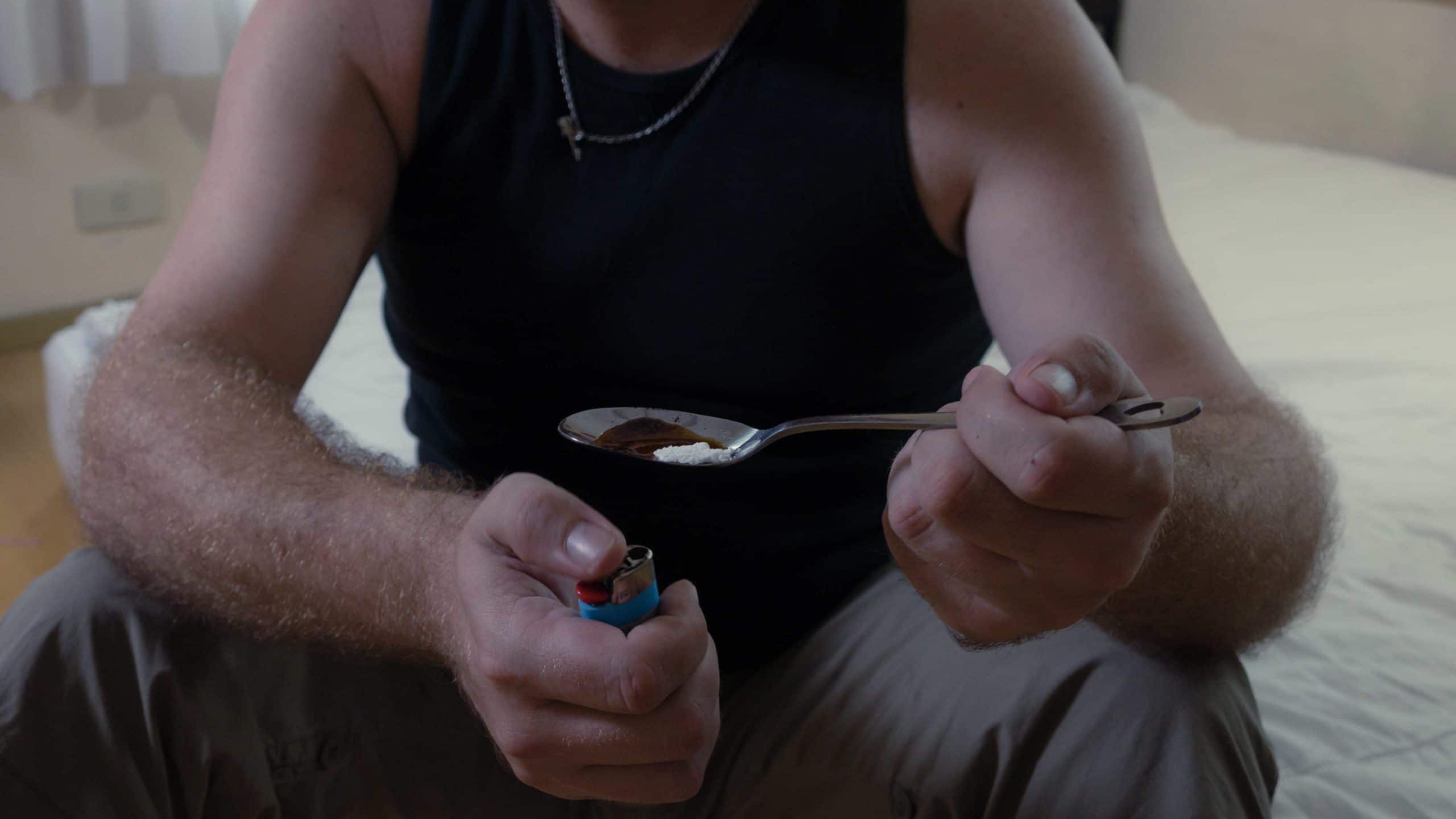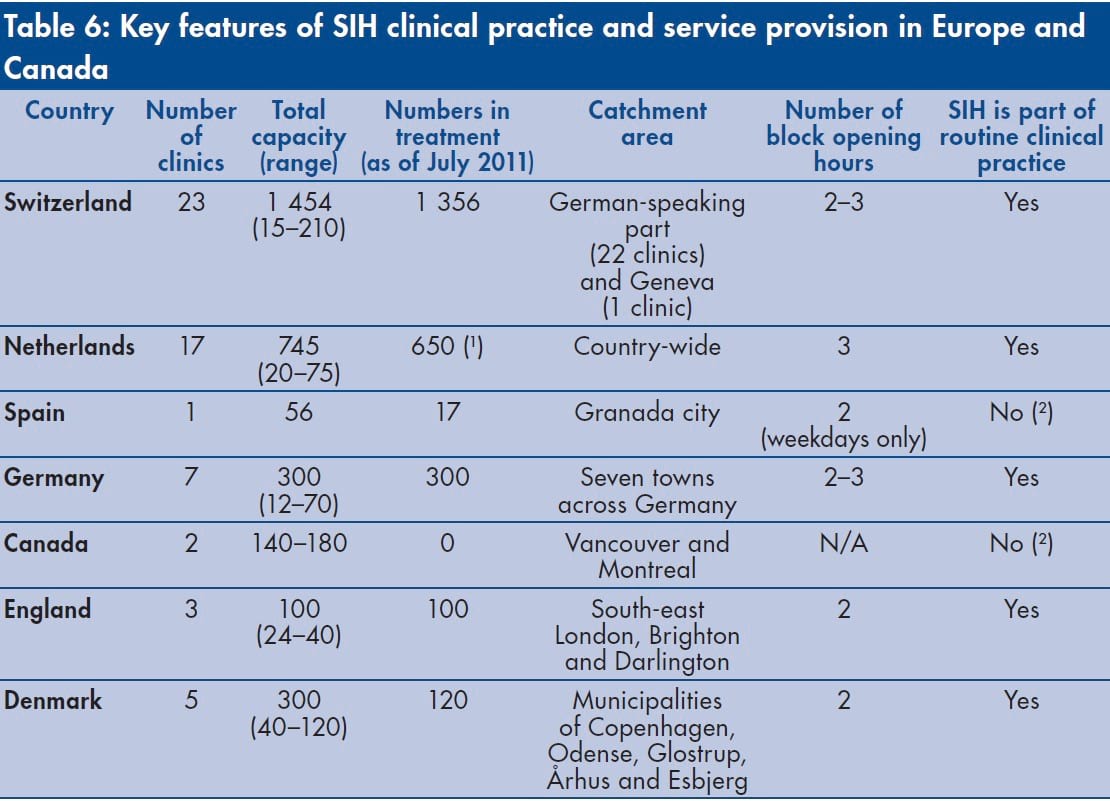People with a long history of heroin dependence in Middlesbrough are to receive daily doses of diamorphine (the chemical name for pharmaceutical heroin) starting this week as part of plans to reduce deaths, stop crime and undermine drug dealers.
The Heroin Assisted Treatment (HAT) programme is claimed to be the first scheme of its kind in the UK (although I think I remember pilots in London and elsewhere about a decade ago). The programme is aimed at 15 of the most “at risk” individuals in Middlesbrough, for whom all other treatment has failed and who are causing the most concern to criminal justice agencies, as well as health and social care services. Under the programme, participants will visit a clinical facility twice a day where diamorphine (medical grade heroin) will be administered under supervision.
The aim is that, with the need to constantly fund street heroin removed, individuals can then engage on a one-to-one basis at the clinic with various agencies including health, housing and welfare to get their lives back on track and return to mainstream society.
The scheme has been organised and part funded by the Police and Crime Commissioner for Cleveland Barry Coppinger, with the clinical team led by Daniel Ahmed of the Foundations Medical Practice. Funding has also been provided by Durham Tees Valley Community Rehabilitation Company and the Tees and Wear Prisons Group and enhances existing staff resource provided by South Tees Public Health.
The evidence
Heroin Assisted Treatment, known in the drugs field as SIH (supervised injectable heroin) treatment, by its very nature attracts attention and controversy. For this reason the organisers of the Middlesbrough scheme have been very careful to emphasise the robust evidence base for this approach.
Supervised injectable heroin treatment was developed and initially introduced in Switzerland during the 1990s after a century of prescribing heroin for the treatment of addiction without direct supervision, mostly in the United Kingdom by GPs. Since the 1990s, SIH treatment has been tested as a new clinical practice in a number of European countries and in Canada.
In 2012, the European Monitoring Centre for Drugs and Drug Addiction (EMCDDA) published a report examining the effectiveness of the SIH approach. The authors, including the UK’s own Professor Sir John Strang, reviewed the evidence from six high quality evaluations involving more than 1500 patients. All these studies were Randomised Controlled Trials where similar patients with long-standing dependencies on heroin were allocated either to SIH or continued with their prescription receiving the heroin substitute methadone (taken as a liquid) – the mainstream service offered to dependent heroin users in this country. The studies found major reductions in the continued use of street heroin and lesser reductions in the use of other drugs such as cocaine and alcohol. Patients receiving SIH treatment also improved in terms of their physical and mental health; critically for the PCC, reductions in criminal activity were also evident. Clearly, if you are being prescribed heroin twice a day you do not need to steal and burgle in order to get funds to buy street drugs.
Crime reduction
Police and Crime Commissioner for Cleveland, Barry Coppinger, set out the rationale for the new Heroin Assisted Treatment:
“The policies of the past have failed. If we are serious about tackling and preventing addiction we need to listen to the experts, take notice of the evidence and act decisively.
Police need to continue to relentlessly target the organised gangs and dealers behind the supply of street heroin and at the same time we need to provide effective treatment to release users from their snares and take early preventive action to prevent others becoming addicted.
There are numerous studies that show HAT is cost-effective. In Middlesbrough the most prolific cohort of 20 drug-dependent offenders have cost the public purse almost £800,000 over two years – and that’s based only on crime detected.
By removing street heroin from the equation you remove the need to commit crime to fund addiction and the impact this has on local residents and businesses, you remove the health risks of street heroin and the associated drugs litter and you remove the drain on public services including health and police. In addition you halt the flow of funding to drugs gangs.”
The PCC went on to say that the pilot will be independently evaluated and, if successful, he intends to use funding is from the Proceeds of Crime Act to extend it for a second year and across the rest of Cleveland. He noted that PCCs received just 18% of the money seized under POCA and he wants to see the Home Office and over a greater share to support initiatives such as HAT. Certainly securing funding will be important, since it costs £12,000 to put each individual through the programme.
Obviously, we must wait and see how the pilot performs but many in the law enforcement and drug treatment circles will be hoping that it succeeds. In addition to reducing crime, we must hope that it helps reduce the recent surge in drug-related deaths which are highest amongst exactly this project’s target population – long-term, ageing heroin addicts who have developed a range of complex physical and mental health problems.



3 Responses
Great progress. So if I move to the town can I get my habit sorted, so I can concentrate on personal relationships, getting job etc. I’ve done cold turkey 33 times and I cant function without spending £50+ a day on my habit.
All people in UK should have access to same healthcare???
I’m in the lake Erie area and could use some help finding some drugs
I’m sick as fuck